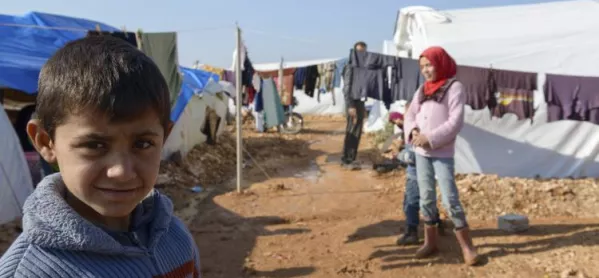The past year in Western politics has been one upheaval after another, from the EU referendum result and Donald Trump’s surprise presidential win to the latest UK election result. The unfortunate side effect of these events is that they have sucked up a great deal of media oxygen from the great long-term challenges of our time.
Everybody remembers the widely circulated photograph of Alan Kurdi, the drowned Syrian boy who washed up on a Turkish beach two years ago. But what they may not remember is that, one year later, the boy’s father gave an interview in which he expressed disappointment with how little the tragic picture had actually gone towards solving the refugee crisis.
It looks no closer to being solved now than three years ago when people started crossing the Mediterranean in increasing numbers: 1.25 million people applied to claim asylum in Europe during 2015 and 1.2 million in 2016 - easily the largest refugee crisis since the Second World War. This year, there have been another 1,300 deaths on the migration route up until May.
It is encouraging that German chancellor Angela Merkel has just hosted African leaders to discuss the refugee crisis ahead of the G20 summit taking place in Hamburg next month, but so far the EU has only managed to relocate 5 per cent of its target for refugees arriving in Greece and Italy. Meanwhile, numbers of refugees continue to multiply all over the world and there is now a total of more than 65 million displaced people globally, with more than 5 million of those from Syria alone.
‘Muddy, feverish and toxic’
It may come as no surprise, then, to learn that a major new report on global youth attitudes shows that the world’s young people want action. Earlier this year, the Varkey Foundation published the Generation Z: Global Citizenship Survey into the attitudes of young people aged 15-21 in 20 major countries. A key finding for the UK was that a large proportion of young people (48 per cent) think their government is doing too little to help solve the global refugee crisis, while only a tiny number (10 per cent) said it was doing too much.
This is doubly interesting when considered against the background of the recent general election. Although the refugee crisis and surrounding issues played seemingly no role in the UK elections, youth turnout was at a high. There is broad recognition that, given this development, the tone of political discourse may have to change and reflect the concerns and priorities of the young more.
Rightly or wrongly, politicians may have concluded that refugees were not a priority for the public - at least in comparison to the economy, housing, security and the usual list of supposedly paramount policy concerns. This has been bolstered by the tendency of some parts of the press and political spectrum to conflate the problems of refugees, economic migrants and terrorism; as a result, the debate around each of these issues has often become muddy, feverish and toxic. These new developments, however, may mean that when the current political crisis in the UK is resolved, there will be more room and more support for an efficient response to problems such as the refugee crisis.
Even examined on a purely self-interested level, the failure to deal with the refugee crisis has high long-term costs for us all because the problem contributes to global instability, weak economic performance and eventually war, extremism and potential terrorism. At the same time, solving the crisis also needs real insight and political will. Throughout the world, people are now displaced on average for between 10 and 20 years.
A roundtable organised by the Varkey Foundation last year underlined that refugees need to be able to carry on with life - whether that means education or employment - and may also need help to negotiate the complexities of applications and regulations. As a worldwide community, we cannot expect a short list of nations situated on the borders of war zones to entirely shoulder the responsibility of caring for and educating the bulk of the world’s refugees.
We need to give financial support to countries such as Lebanon, which has seen its numbers of school-age children needing education almost triple. International pledges of funding have been forthcoming - the London conference on Syria in 2016 pledged a record-breaking $12 billion in overall aid for Syrian refugees - but sadly, as is so often the case, promised funds may be severely delayed or even never materialise. An independent survey by the global children’s charity Theirworld found that, as of January this year, less than a third of the money needed for education has been delivered from all pledges.
Today marks World Refugee Day 2017, and the UN High Commission for Refugees will use the date to launch its #WithRefugees petition, sending a message to governments that they must work together to do their fair share. A hung parliament means we don’t know who our political masters will be next week, let alone in a year.
But all players in contention should remember that the powerful block of new young voters are demanding action on refugees, and if politicians don’t listen, they could be punished at the ballot box. Today would be a good day to signal their intent.
Vikas Pota is chief executive of the Varkey Foundation
Want to keep up with the latest education news and opinion? Follow Tes on Twitter and like Tes on Facebook




